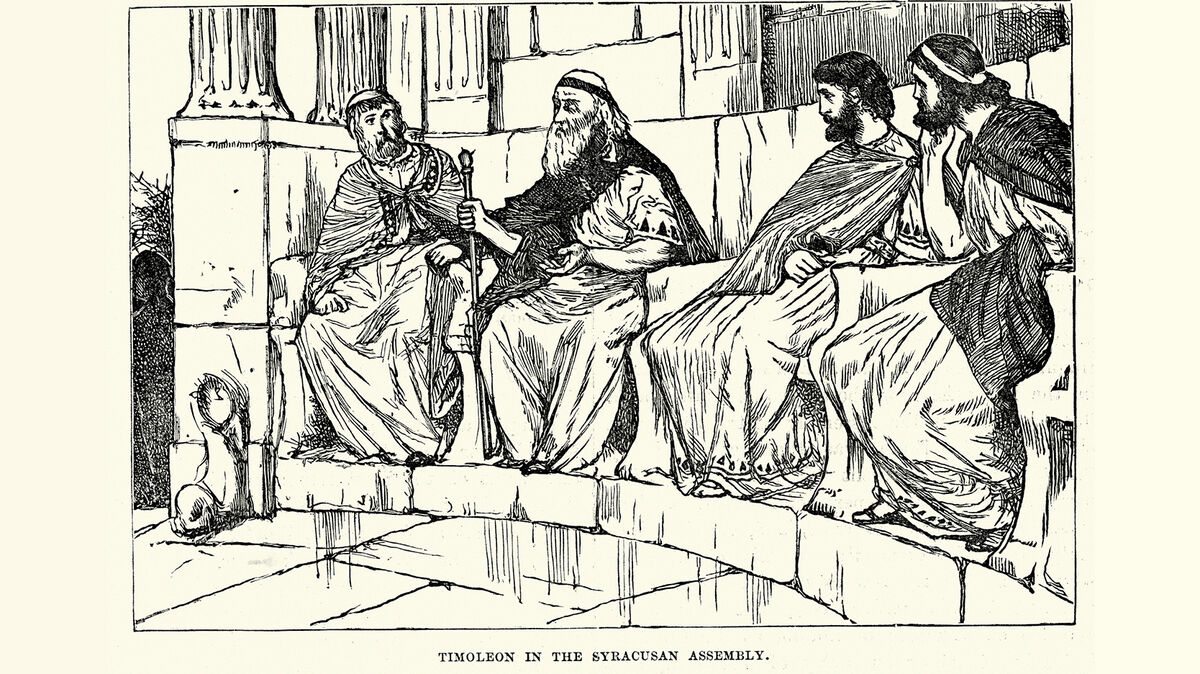
Greeks are famous for the intricate and interesting governments including their development of democracy. Learn about the 4 common types of ancient Greece government. Get a breakdown of the different types of ancient Greek government and a few examples of each type.
Ancient Greek Governments Found in City-States
The Greeks knew how to rule. Well, maybe they didn't know the best way, but they refined their process to find it. The vast ancient Greek empire was broken up into city-states. Two of the most famous were Athens and Sparta. Also called a polis, each city-state had its own way of ruling and government. And the types of government could vary with the ruler of the city-state at that time. However, throughout its history, you can find four distinct types of government used throughout the city-states.
- Monarchy
- Oligarchy
- Tyranny
- Democracy
Explore how these types of government worked and a few examples of each in ancient Greece.
Monarchy in Ancient Greece
When you think of ancient Greece, a democracy might be the only thing you think about. But it wasn’t the only type of government. Many city-states in ancient Greece started as monarchies. This was the typical rule from 2,000-800 B.C. In a monarchy, rather than the people ruling, a royal family does. This royal title is then passed down the family line. Think of the Queen of England and her family. That’s a monarchy. Now an ancient Greek monarchy could be an absolute monarchy, where the king was law. More common, however, was a democratic monarchy. For example, Sparta had two kings, but they were kept in check by an assembly.
Other examples of ancient Greek monarchies include:
- Macedonia
- Epeiros
- Corinth
- Argos
Ancient Greek Oligarchies
As the Greeks started to get tired of the monarchy rule, oligarchies would become more common from about 800-600 B.C. An oligarchy was a Greek form of government where a small group of people ruled the country. For example, Athens became an oligarchy when the "council of the 400" took over. The council took control of Athens away from the people of the assembly. Another famous oligarchy of Athens was the Spartan-induced oligarchy of the 30 tyrants.
Other important oligarchies throughout ancient Greek history were found in:
- Megara
- Thebes
- Sparta
- Ephesus
Tyranny in Ancient Greece
While a monarchy could be a good thing when it worked for the good of the people, it could also be oppressive when the ruler was cruel. One ruler runs a tyrannical government, but this ruler took hold of the city-state by murder or some other unconstitutional manner. And this position didn't pass down a family line. However, just because these rulers took over unjustly doesn’t mean they were inherently evil; instead, they had their own interests at heart. Tyrannies ran rampant from about 600-400 B.C. in Ancient Greece but happened before and after as well.
A few famous tyrannical leaders in Greek history include:
- Athens - Peisistratus
- Sicyon - Cleisthenes
- Samos - Polycrates
- Argos - Pheidon
- Corinth - Cypselus
- Thessaly - Lycophron
While some tyrants were demonized, others worked to pave the way for democracy within the city-state.
Ancient Greek Democracy
One of the most famous types of government Greece is known for is democracy, which started around 500 B.C. in Athens. The basic principle of democracy is that the people rule. Several different types of democracy exist, but a true democracy is where every person votes on laws and government. They might do this through a straight vote or representatives. Many democracies in ancient Greece were broken down into three parts.
- assembly - citizens showing up to vote
- council - elected officials running daily government decided by a lottery
- courts - handle trials and judgment of lawbreakers
Examples of Democratic City-States
When talking about Greek democratic government examples, the best-known example is Athens. The Athenian government was made up of the assembly, boule or Council of Five Hundred, and dikasteria or courts.
Other famous examples of ancient Greek democracy include:
- Eritrea
- Syracuse
- Rhodes
- Argos
- Megara
Ever-Changing Ancient Greek Government
As you can see, the government of the city-states of ancient Greece was anything but constant. A tyrannical leader or power shift could lead to several different rulers and types of government. For example, Athens experienced tyranny, oligarchy and democracy throughout its history. Keep your exploration of all things Greek going by looking at Greek vs. Roman gods.